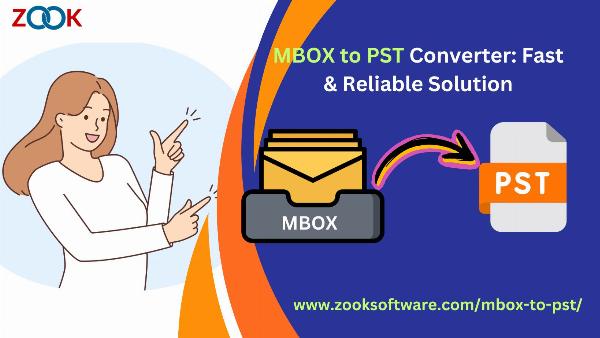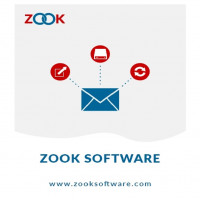MBOX to PST Converter: Fast & Reliable Solution

Strong 8k brings an ultra-HD IPTV experience to your living room and your pocket.
Introduction
In today's digital landscape Managing emails is critical for personal and professional use. MBOX and PST formats are commonly used to store email, but for different purposes. MBOX files are popular in email clients, while PST files are used by Microsoft Outlook. This article examines the importance of convert MBOX Files into PST, provides guidance on selecting the appropriate conversions, and provides detailed step-by-step instructions for a smooth conversion.
Understanding MBOX and PST Formats
MBOX File Format:
MBOX is a file format used for storing email messages in a single text file, with each email separated by a specific delimiter. It is utilized by numerous email clients like Mozilla Thunderbird, Apple Mail, and others. The format is simple yet effective for email storage, but it may not be compatible with all email applications.
PST File Format:
PST, or Personal Storage Table, is a proprietary file format used by Microsoft Outlook to store emails, contacts, calendars, and other data. Unlike MBOX, PST files offer more extensive features and integration with Outlook, making them suitable for users who rely on Microsoft's email client for managing their communication.
Why would you convert MBOX to PST?
Benefits of switching for Outlook users
For users switching from email clients that support MBOX to Microsoft Outlook, convert MBOX files to PST is essential. PST files allow seamless integration of Outlook features, including advanced search capabilities, calendar management, and contact management.
Common issues that require adjustments
Email Client Update: When migrating from an email client in Outlook using MBOX.
Data migration for Backup: To move email to a secure or manageable format.
Business Changes: When organizations change their email policy and need to collect data.
Choos the Right MBOX to PST Converter
Key Features to Look For in a Converter
When selecting an MBOX to PST converter, consider the following features:
Compatibility: Ensure the tool supports your specific MBOX file type.
Ease of Use: Look for user-friendly interfaces that simplify the conversion process.
Accuracy: Choose a converter that maintains the integrity of your emails and attachments.
Complete Video Tutorial to Convert MBOX Files into PST File Format
Comparing Free vs Paid Tools
Free tools can be useful but often come with limitations, such as restricted functionality or fewer support options. Paid converters typically offer more robust features, better customer support, and a higher level of reliability.
User Reviews and Ratings
Checking user reviews and ratings can provide insights into the effectiveness and reliability of a converter. Look for feedback on performance, ease of use, and customer service to make an informed decision.
Step-by-Step Guide to Using an MBOX to PST Converter
Preparing for the Conversion
Backup Your Data: Always create a backup of your MBOX files before starting the conversion process.
Choose a Converter: Select a converter based on your needs and budget.
Executing the Conversion
Install the Converter: Follow the installation instructions provided by the software.
Import MBOX Files: Load your MBOX files into the converter.
Start the Conversion: Start the conversion process and wait for it to complete.
Post-Conversion Tasks
Verify the Data: Check the converted PST file to ensure all emails and attachments have been accurately transferred.
Import to Outlook: Open Microsoft Outlook and import the PST file to start using your converted emails.
Conclusion
Converting MBOX files to PST is a necessary step for users transitioning to Microsoft Outlook. By choosing the right converter and following a structured approach, you can ensure a smooth and reliable migration. Remember to back up your data and verify the conversion process to safeguard your valuable email information.
Final Recommendations: Select a ZOOK MBOX to PST Converter, consider both free and paid options based on your needs, and stay informed about emerging trends in email conversion technologies.
Note: IndiBlogHub features both user-submitted and editorial content. We do not verify third-party contributions. Read our Disclaimer and Privacy Policyfor details.


